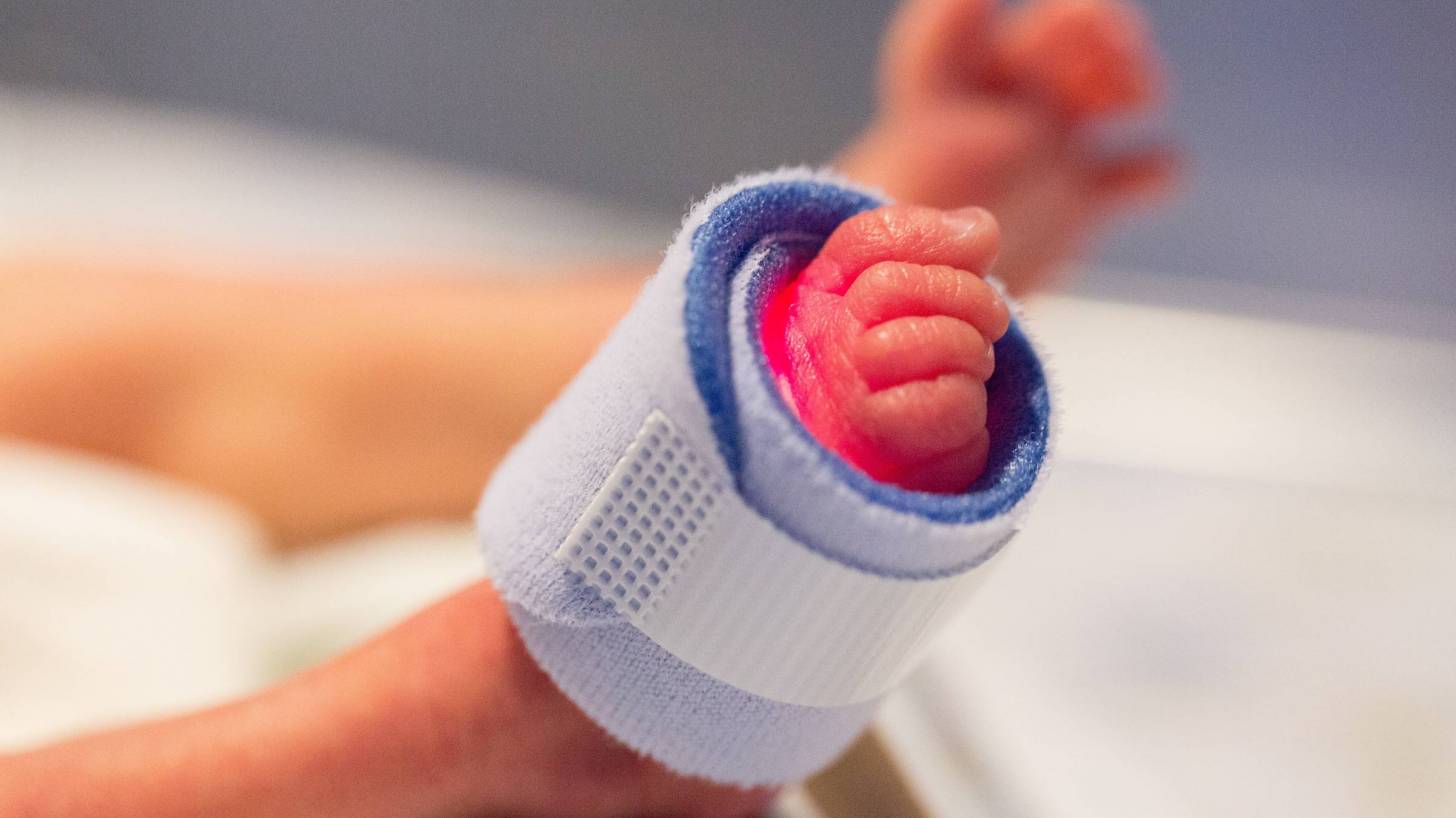When Should Preemies Receive Rotavirus Vaccine?

Infants born prematurely are at increased risk of severe rotavirus disease and associated complications, says a recent study.
Because preterm infants carry an increased risk of health complications if they contract rotavirus at a young age, especially while still hospitalized, it's recommended to give the rotavirus vaccine as soon as possible.
The Centers for Disease Control and Prevention (CDC) recommends the first rotavirus dose should be administered by 104 days of age.
The Advisory Committee on Immunization Practices and the American Academy of Pediatrics supports rotavirus vaccination of preterm infants according to the same schedule as term infants.
But, with an important stipulation.
The requirement that the vaccine should be administered at or after hospital discharge is because of the concern for rotavirus vaccine shedding and the unknown impact of potential nosocomial spread.
A recent study of infants admitted to an urban academic medical center reported at discharge, only 32.7 percent of infants were up-to-date for rotavirus vaccination, compared with 82.7% for other vaccinations.
Of rotavirus-unvaccinated infants, 42.6 percent were discharged after 104 days of age, and thus vaccination-ineligible.
This research indicates that delaying rotavirus vaccination until discharge from the hospital could lead to missed vaccination opportunities.
Pentavalent human-bovine reassortant rotavirus vaccine (RV5) was used during this study when a baby was age-eligible in the NICU.
These researchers concluded that assuming infection control standards are in place when this vaccine is administered to NICU infants, it is worth it to give the vaccine while in the hospital, rather than after discharge when a preterm infant is no longer eligible and could still develop rotavirus.
Rotavirus is a contagious virus that can cause gastroenteritis (inflammation of the stomach and intestines). Symptoms include severe watery diarrhea, often with vomiting, fever, and abdominal pain. Infants and young children are most likely to get rotavirus disease. They can become severely dehydrated and need to be hospitalized and can even die.
Rotavirus vaccine is the best way to protect your child against rotavirus illness. About 7 out of 10 children will be protected from rotavirus illness, reports the CDC.
Two rotavirus vaccines are currently licensed for use in infants in the United States:
- RotaTeq (RV5) is given in 3 doses at ages 2 months, 4 months, and 6 months
- Rotarix (RV1) is given in 2 doses at ages 2 months and 4 months
Both vaccines are given orally, not by a shot. The first dose of either vaccine is most effective if it is given before a child is 15 weeks of age. Also, children should receive all doses of rotavirus vaccine before they turn 8 months old.
The rotavirus vaccine cost varies depending on your insurance and which state you live. The CDC Vaccine Price List provides the private sector vaccine prices for general information.
Vaccine discounts can be found here.
Vaccines, like any medicine, can have side effects, says the CDC. You are encouraged to report negative side effects of vaccines to the FDA or CDC.
These researchers did not disclose any conflicts of interest: Annika M. Hofstetter, Kirsten Lacombe, Eileen J. Klein, Charla Jones, Bonnie Strelitz, Elizabeth Jacobson, Daksha Ranade, M. Leanne Ward, Slavica Mijatovic-Rustempasic, Diana Evans, Mary Wikswo, Michael D. Bowen, Umesh D. Parashar, Daniel C. Payne, Janet A. Englund.
Address correspondence to Barbara Pahud, MD, MPH, Department of Infectious Diseases, Children’s Mercy Hospital Kansas City. E-mail: bapahud@cmh.edu
Our Trust Standards: Medical Advisory Committee


























